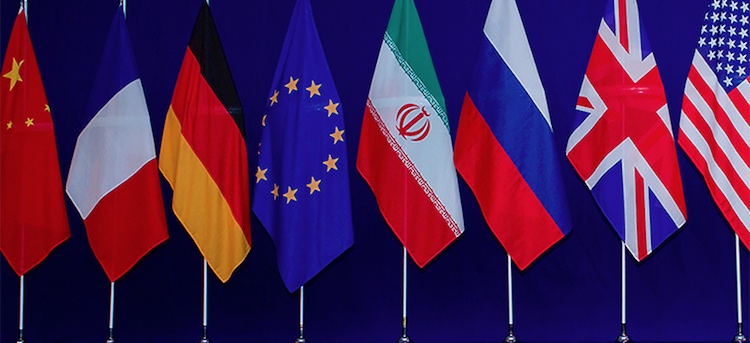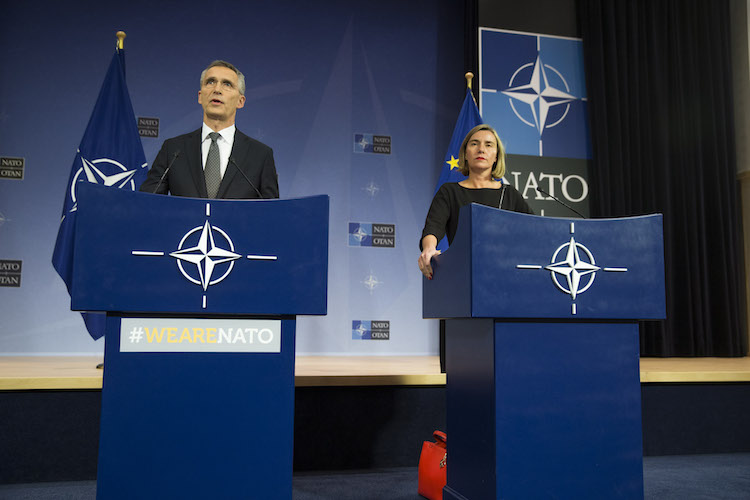By J C Suresh TORONTO (IDN) – One day after the European Union reiterated its commitment to support “the full and effective implementation of the agreement” with Iran, the Trump Administration announced on January 12 that it will continue to waive sanctions on the Islamic Republic in accordance with U.S. commitments under the 2015 nuclear […]
Donald Trump’s Nuclear Posture Rather Menacing
By Daryl G. Kimball Daryl G. Kimball is Executive Director of the Arms Control Association. This article first appeared with the caption ‘Trump’s More Dangerous Nuclear Posture’. WASHINGTON, D.C. (IDN-INPS) – Just one year ago, Vice President Joe Biden delivered an address touting the progress achieved during the Obama years to reduce the salience and […]
UN Expert Reveals Shocking Facts about Poverty in the U.S.
By J C Suresh TORONTO (IDN) – More than one in every eight Americans, numbering 40 million, equal to 12.7 % of the population, are living in poverty, and almost half of those – 18.5 million – in abysmal poverty, according to a new report. Though the United States is one of the world’s richest, […]
Despite Differences, New Areas of NATO-EU Cooperation Agreed
By Jaya Ramachandran BRUSSELS (IDN) – Against the backdrop of growing estrangement between the European Union (EU) and the United States with Donald Trump at the helm of affairs, 23 member states of the European Union (EU) signed up on November 13 for the permanent structured cooperation (PESCO) on defence. In spite of persisting differences, […]
U.S. and Russia Should Avail of the Avalanche of Truth-Telling
By Alice Slater* NEW YORK (IDN-INPS) – NATO’s recent provocative decision to build up its military forces across Europe by sending four new multinational battalions to Lithuania, Latvia, Estonia and Poland, comes at a time of great turmoil and intense questioning of global security with new forces for both good and evil straining to make […]
Congressional Report Warns of Skyrocketing Costs of U.S. Nuclear Arsenal
By J C Suresh
TORONTO | WASHINGTON, D.C. (IDN) – A new study throws limelight on the skyrocketing costs of the current plan to sustain and upgrade U.S. nuclear forces and outlines several pragmatic options to maintain a credible, formidable deterrent at less cost.
The Congressional Budget Office (CBO) study published on October 31 estimates that sustaining and upgrading U.S. nuclear forces will cost taxpayers $1.24 trillion in inflation-adjusted dollars between fiscal years 2017 and 2046. When the effects of inflation are included, the CBO expects the 30-year cost to exceed $1.5 trillion. These figures are significantly higher than the previously reported estimates of roughly $1 trillion.
Donald Trump and the War Industry: Nothing Has Changed
Viewpoint by Marcelo Colussi *
GUATEMALA CITY (IDN) – During his presidential campaign, Donald Trump had the audacity (bravado? stupidity?, bad political calculation?) to ask himself if it was convenient to continue the war in Syria and tension with Russia.
The idea probably crossed his mind of putting the emphasis mainly on stimulating a sluggish domestic economy, which is gradually lowering the standard of living of ordinary American citizens.
His feverish promises to bring back industry – dislocated to other parts of the world with cheaper labour – do not appear to have gone in vain. Less than a year after his administration took over, it can be seen how U.S. foreign policy is still marked by the almighty military-industrial complex and wars continue unabated.
9/11 – The Morning That Changed The World I Knew
By Dr Palitha Kohona*
COLOMBO (IDN) – It was another sunny September morning. The sky was a brilliant blue. As I gazed out of my kitchen window while having breakfast, in Mid Town Manhattan, the twin towers were glistening in the morning sun. I noted, as I often had, that they were still there, a familiar reassuring sight. The cute young blonde in the apartment across the street was drying her wet hair, as usual, by her plate glass window. The walk to the UN and my office on the 32nd floor of the Secretariat was uneventful. Not that I expected anything untoward to happen. A pre-scheduled closed-door management meeting began on time.
Veterans For Peace Mobilise To Resist Militarism
By Brian Trautman*
WASHINGTON, D.C. (IDN-INPS) – The United States is the most militarized and jingoistic nation on earth. Its foreign policy is guided by imperialist militarism, neoliberal capitalism and racial xenophobia. For more than sixteen years now, three presidential administrations have carried out a so-called “War on Terror” (GWOT), a perpetual state of war that is waged globally, under the depraved reasoning that “the world is a battlefield,” to quote investigative journalist Jeremy Scahill.
As demonstrated by the invasions of Iraq and Afghanistan, the GWOT is conducted through conventional warfare. More often, however, it is executed through covert or “dirty” wars, against groups and individuals in many other nations.
Trump 2018 Budget Proposes Hike in Arms Spending
WASHINGTON, D.C.(IDN | NAPF) – The U.S. Department of Energy released Trump’s Fiscal Year 2018 budget request on May 23. The budget includes a $54 billion increase in defence spending, including $10.2 billion for supposed “Weapons activities to maintain and enhance the safety, security and effectiveness of our nuclear weapons enterprise.” Details of exactly what is included in the $10.2 billion increase have not yet been released.
While the overall budget includes significant increases to defence spending, it also includes significant cuts to scientific research, medical research, disease prevention and health insurance for children of the working poor. The Environmental Protection Agency’s (EPA) current funding would be cut by more than 30 percent. Planned Parenthood would not receive any Health and Human Services Funding.










